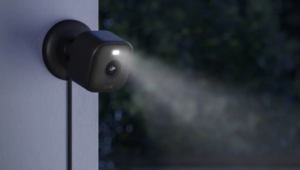Critical Thinking & Its Importance in Day-to- Day Life
Whether it’s your workplace, school/ college, or home, critical thinking is an important skill in daily life for all of us. It is this ability of reasoning logically that helps us understand and solve problems and also to do things that can help us all get better at our work as well as life in general. This is one of the key reasons why critical reasoning is often a part of assessment by prospective employers as well as entrance tests in professional courses. Let’s go ahead and understand the meaning and importance of critical thinking in detail in this article.
Critical thinking is the process by which people use their rational and analytical skills to figure out the right action plan, or whether or not to believe the given information provided to them. By exercising critical thinking we can avoid challenges such as faulty decision making, distrust or accumulating factually incorrect information.
One of the prime examples of critical thinking or its absence is the way we react to information and news shared on social media channels and chat platforms such as WhatsApp.
Krishna received a WhatsApp forward claiming that face masks are dangerous for users as they can lead to accumulation of germs and he not only instantly believed the message, but also forwarded it to his friend, Rahul.
Being a smart person who was well versed with the typical social media messaging, Rahul immediately understood that the message was bogus, and he not only avoided forwarding it to others, but also made Krishna understand that the message was baseless and masks are very important for everyone’s well being in the current pandemic situation.
Similarly, quick thinking based on critical skills of observation and a general ability to differentiate between baseless and correct information can make people more dynamic, independent and better performers. By applying critical thinking, we can see things logically, analyze and evaluate the facts presented to us, spot the statements or inconsistencies that don’t match common sense and help us solve problems in a timely manner.
Critical thinking helps people in collecting information and deciphering it effectively and correctly. Thus, they become better at solving problems and preparing strategies. In today’s competitive world, critical thinking is a crucial skill. It is possible to develop critical thinking skills and reap various benefits offered by it such as:
- Critical thinking is useful for all:
Critical thinking is important for every occupation. It becomes even more important for those working in the field of education, research, finance, business management or law as they need to have the ability to think clearly and solve problems systematically and quickly.
- Critical thinking is essential in the 21st century:
This is the age of knowledge, information and digital technology. The business world is changing rapidly and every few years, we see newer technologies as well as processes emerge which demand flexibility and the ability to quickly integrate new knowledge for effective business continuity. Critical thinking enhances such adaptive behaviour and growth-oriented mindset.
- Critical thinking boosts creativity:
Application of creativity enables problem solving and it is not just about innovative thinking, but also emphasizing on the usefulness of new ideas in order to successfully carry out a task at hand.
- Critical thinking is vital for self assessment:
Unless we are able to assess ourselves honestly, we may not be able to map our inconsistencies and look at them more objectively in order to achieve long-term success. Critical thinking offers the insights and tools necessary for precise self-evaluation.
As is evident by the above-mentioned as well as many other benefits of critical thinking, it can prove to be the differentiator between success and failure. The good thing is that we can learn critical thinking by applying our abilities of comprehension, intuition and knowledge acquisition.







